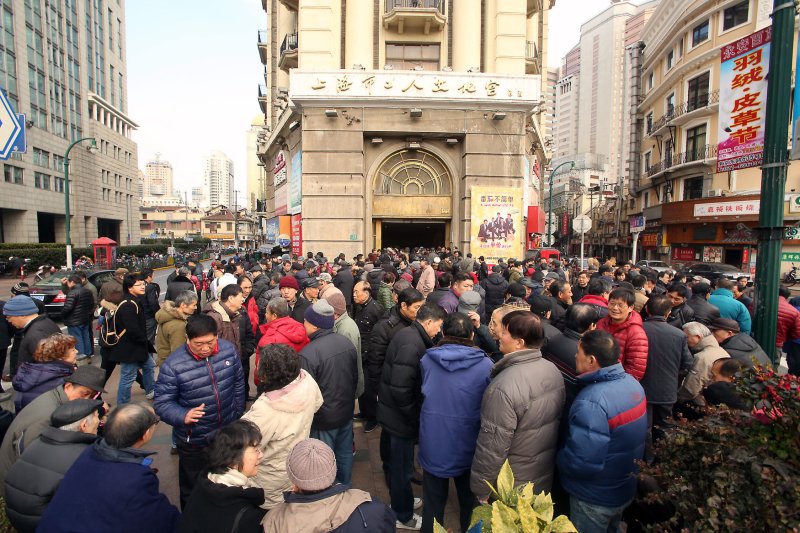Chinese workers and pensioners in Shanghai stand outside a government office after not being paid on time on January 31, 2015. This week, the Chinese government announced it would cap Shanghai's population at 25 million to avoid strains on social services. File Photo by Stephen Shaver/UPI |
License Photo
Dec. 27 (UPI) -- The Chinese government announced this week that it will cap the population of Shanghai at 25 million by 2035 to prevent the country's largest city from catching "big city disease."
The government defined the "disease" as when a megacity has too much pollution, traffic and s shortage of public services like education and medical care.
The State Council said that by 2035, the number of permanent residents in Shanghai will be limited to 25 million people and total construction land will be no more than 3,200 square kilometers, according to Xinhua.
The plan is to make Shanghai an "excellent global city," the State Council said.
Shanghai would become the second city to receive a cap on its population. In September, the Chinese government announced Beijing's population will cap at 23 million by 2020. Beijing's current population is about 22 million.
Although the Chinese government appears to have been able to curb population growth in Beijing largely by cracking down on migrant workers, some experts don't believe a 25 million cap in Shanghai will be possible.
However, some experts don't believe it's possible for Shanghai to cap at 25 million by 2030 since official population number is already at 24.19 million, with unofficial estimates putting it closer to 30 million.
The population control effort could also impact the city's thriving economy.
"It will be a very difficult target to achieve if Shanghai continues to position itself as this center for various sectors - a financial hub, an innovation hub," Lu Jiehua, a sociology professor at Peking University, told the South China Morning Post.
Chen Youhua, a sociology professor at Nanjing University, told SCMP a 25 million cap would be "pointless."
"Curbing the population is unimaginable, and it's also detrimental ... It will ruin a city's development prospects, even in Shanghai," Chen said. "Controlling the population in cities such as Beijing and Shanghai is more of a political decision."















